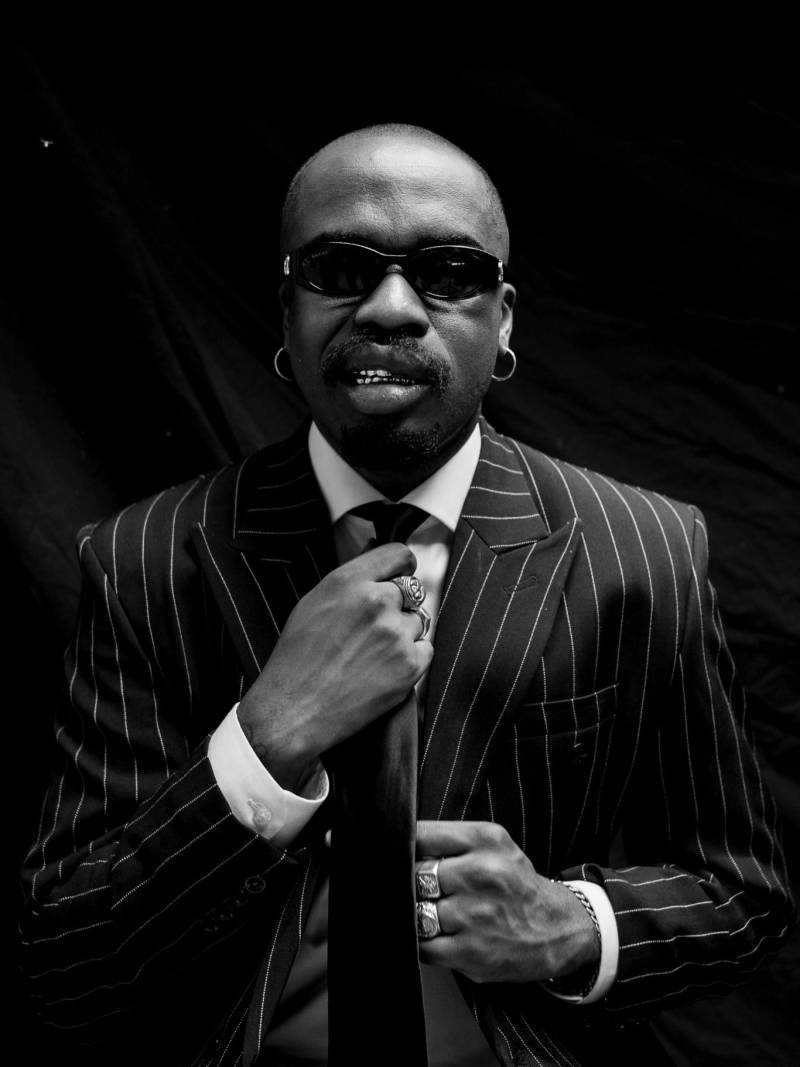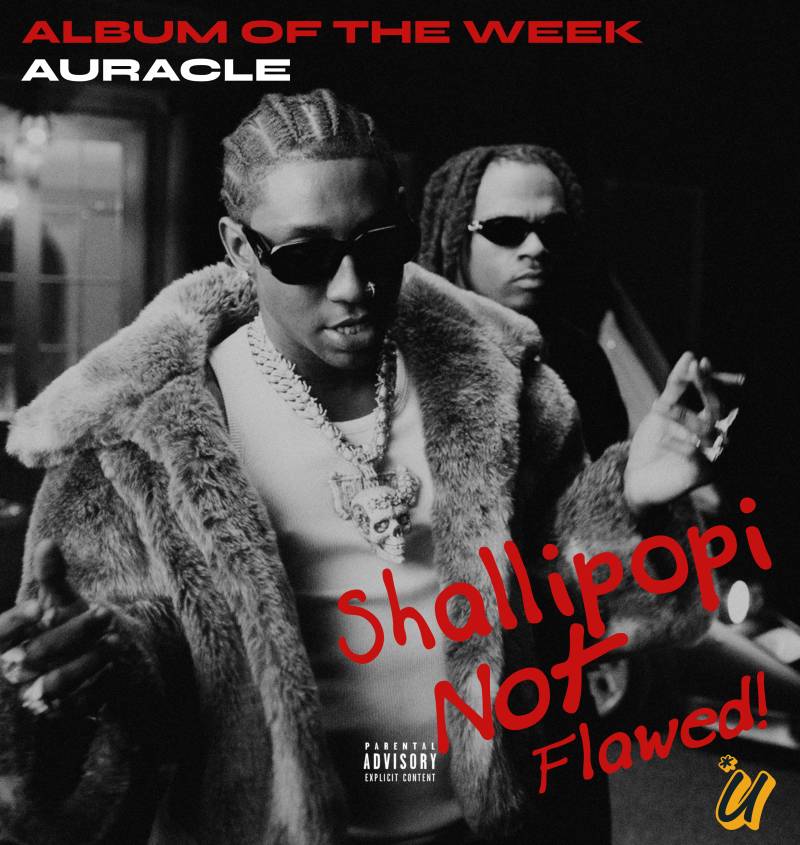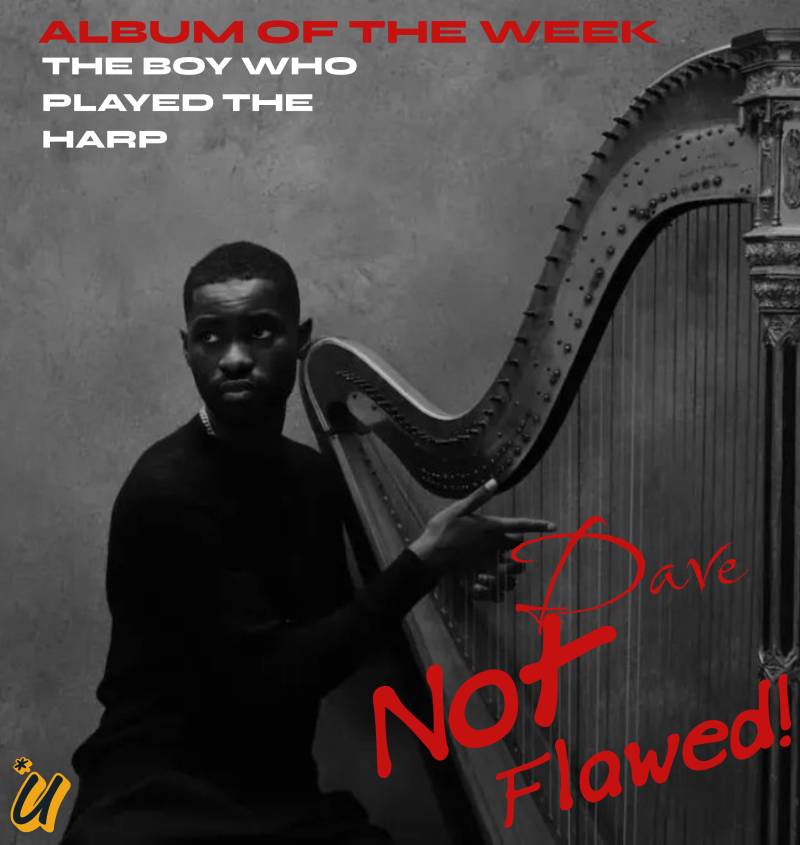Vector isn’t just a rapper. He’s a movement wrapped in lyricism, a storyteller whose verses pulse with the streets of Lafiaji, where Lagos grit meets lyrical intellect. In his words, “Lafiaji is in the blood.” But to truly understand Vector, you need to go beyond the tracks, past the punchlines, and into the mind that bends the mic, a mind born to build, with verses that shape the nation and thoughts that break the mold.
Born Olanrewaju Ogunmefun, Vector’s story begins in the heart of Lagos Island, a place where survival sharpens instinct and dreams are either fuel or fantasy. Lafiaji isn’t just a neighborhood to him; it’s a classroom, a battlefield, and a muse. It’s where he watched the struggles that would later inform his bars and where he learned that power doesn’t always come from wealth or privilege; sometimes, it comes from words. His environment taught him cadence before the studio ever did.
Vector’s early love for hip-hop wasn’t accidental. He gravitated towards the genre’s raw honesty, its ability to speak uncomfortable truths. While others viewed rap as entertainment, he saw it as architecture, every verse a brick, every rhyme a blueprint. His earliest tracks already carried the signature of his style: complex, reflective, and unapologetically Nigerian. He didn’t just rap; he translated the city’s chaos into rhythm.
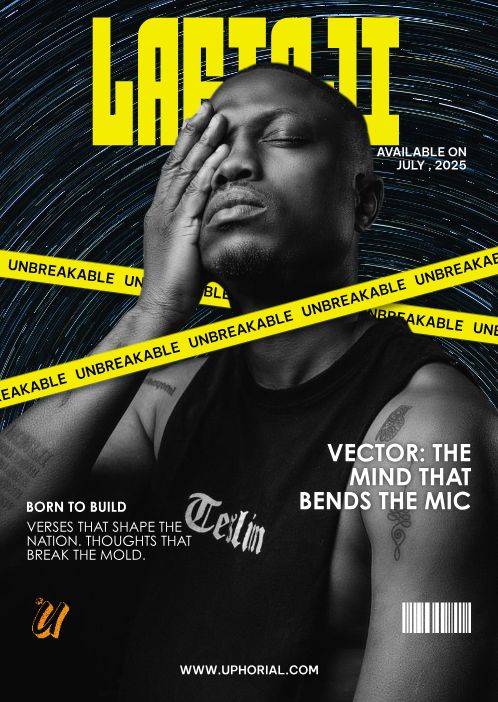
"INTERESTED IN THE HARDCOPY OF THE MAGAZINE - WhatsApp 346-200-7279 TEXT ONLY"
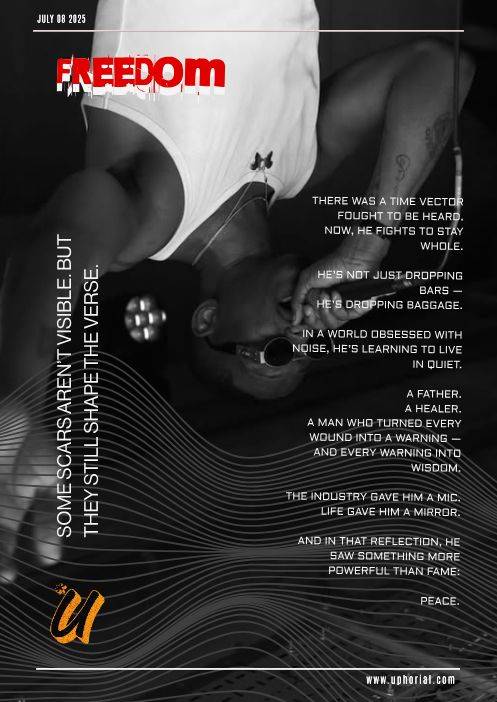
Related article - Uphorial Sweatshirt
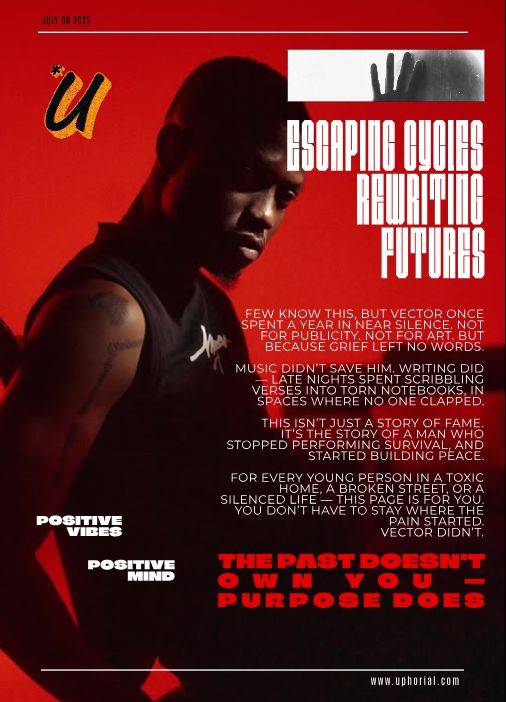
Vector - Lafiaji is in the blood
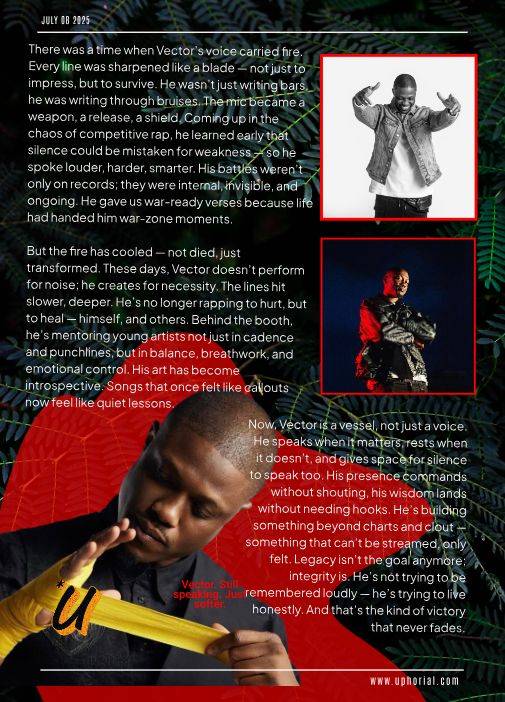
When he emerged in the mid-2000s, Nigeria’s hip-hop scene was shifting. Commercial sounds dominated, and conscious rap was considered a hard sell. Vector wasn’t deterred. His breakout singles like “Angeli” and “Get Down” put him in the public eye, but it was his Lafiaji album that stripped away the glamour to reveal the man beneath the artist. That project wasn’t about chart success; it was about going home. Back to the roots. Back to the stories that made him. In every Vector track, there’s a duality: a street soldier and a scholar. His verses aren’t just clever wordplay; they are essays on life in Lagos, reflections on fame, critiques of power. He’s been called the “Lafiaji philosopher,” and it fits. His intelligence doesn’t just sit in interviews; it’s embedded in his music. Even when the beat is heavy, the message is heavier.
But his journey hasn’t been without conflict. From industry politics to lyrical battles, including his highly publicized feud with MI Abaga, Vector has stood his ground, refusing to be boxed by industry expectations. Yet even in beef, he sought evolution, using the clash not just to dominate headlines but to sharpen his craft. For Vector, every experience is material, every setback a setup for deeper introspection. Today, Vector sounds like a man who knows his place, not in charts, but in history. His latest works, especially Teslim: The Energy Still Lives In Me, show an artist who has transitioned from rapper to poet, from entertainer to educator. His collaborations, whether with younger artists or in spoken word projects, signal a deliberate shift towards legacy-building. He’s not chasing relevance. He’s planting it.
Ask Vector about Lafiaji today, and he’ll tell you it’s more than a memory. It’s a responsibility. He carries it in every performance, every lyric. Lafiaji shaped his hunger, but Vector transformed that hunger into philosophy. He stands not just as a voice from the streets, but as a mind determined to challenge and uplift those streets. In a world where rap often fades into commercial noise, Vector remains a rarity, an artist who believes words can still build nations, who knows that verses can be weapons or wings. For him, music isn’t just sound; it’s structure. And every bar is another beam in the architecture of his legacy. Lafiaji is in his blood. But greatness? That’s in his mind.
